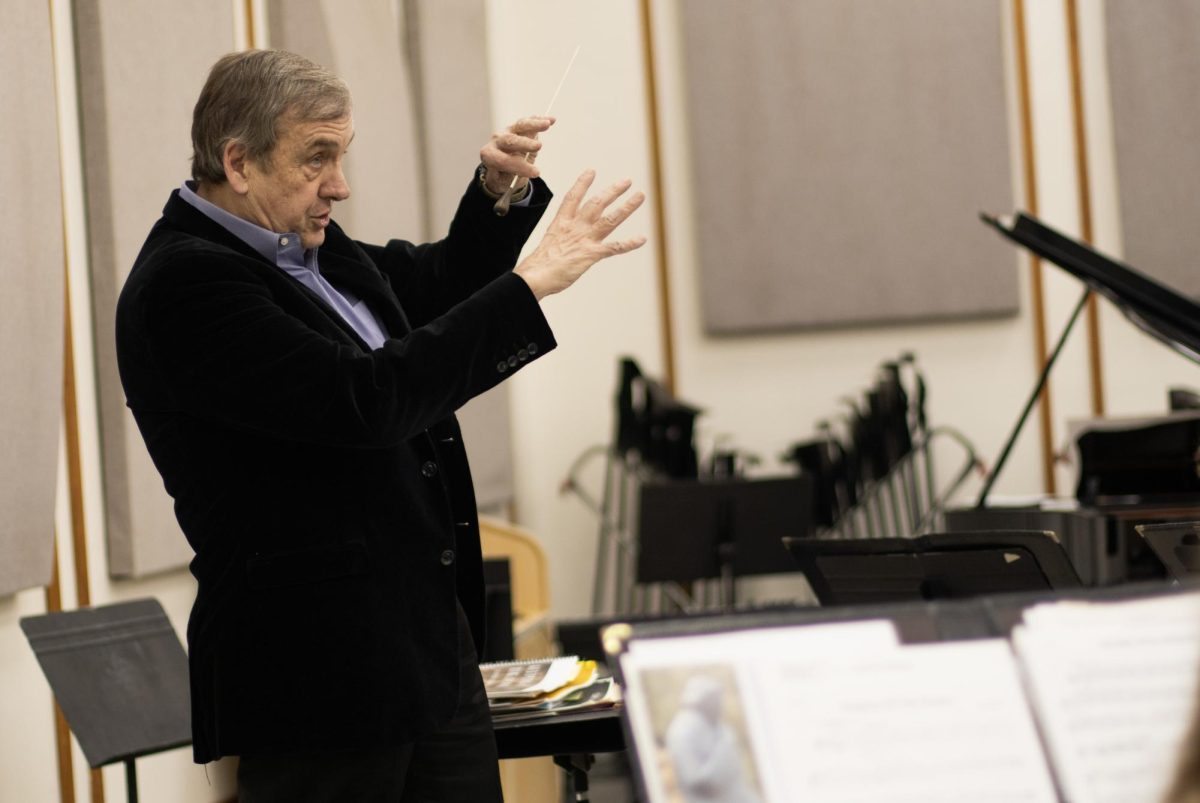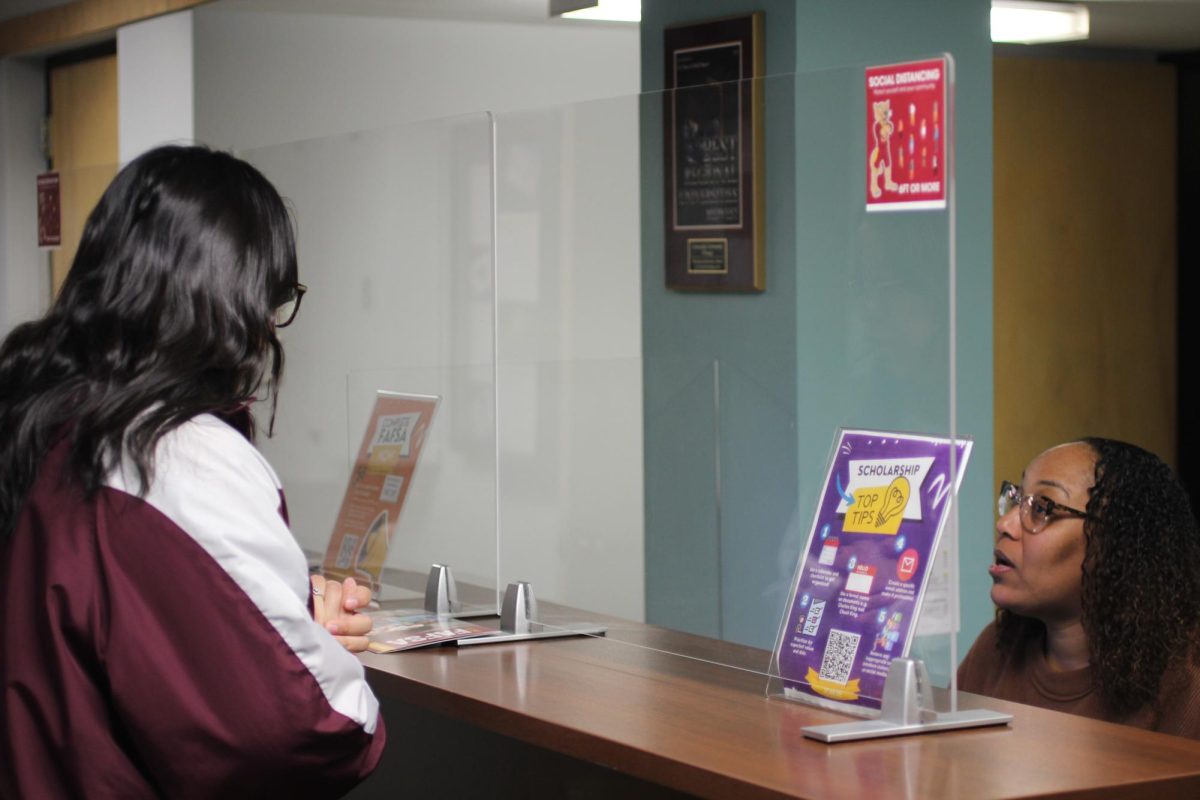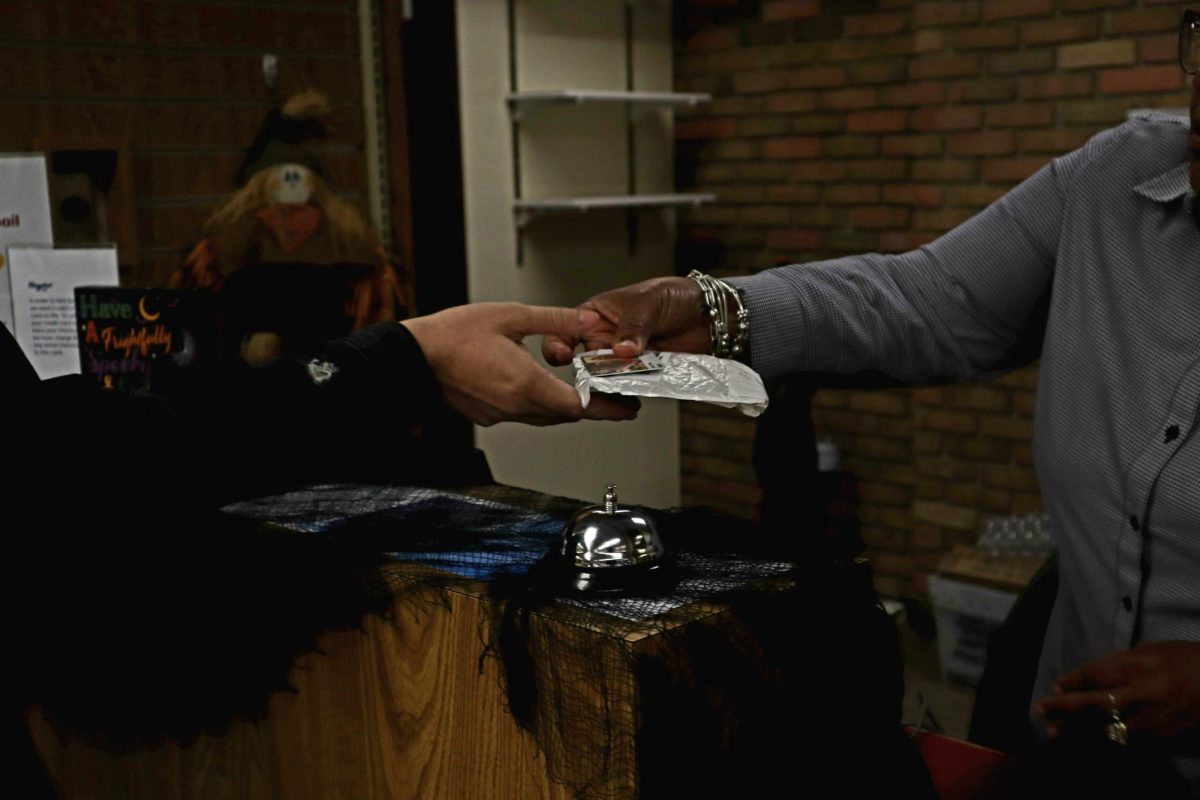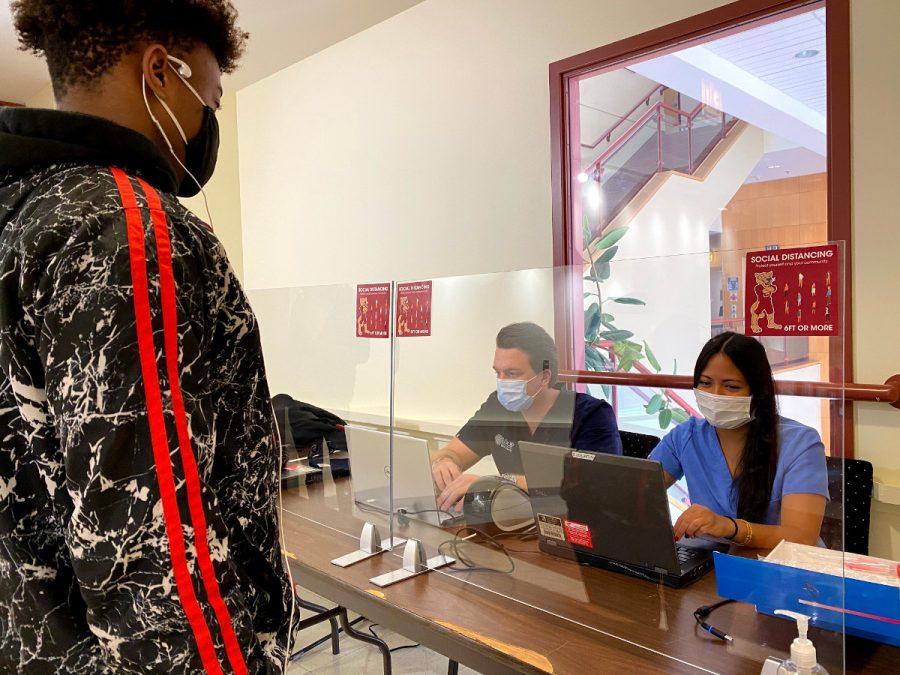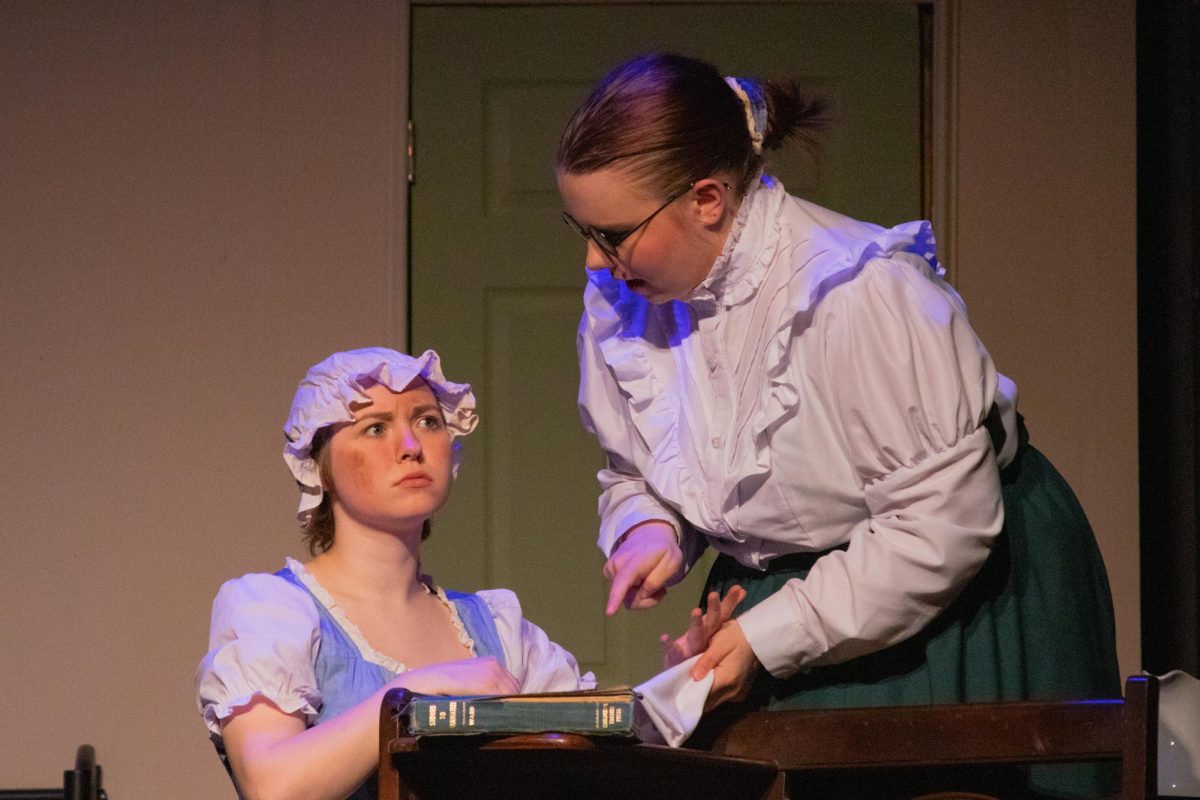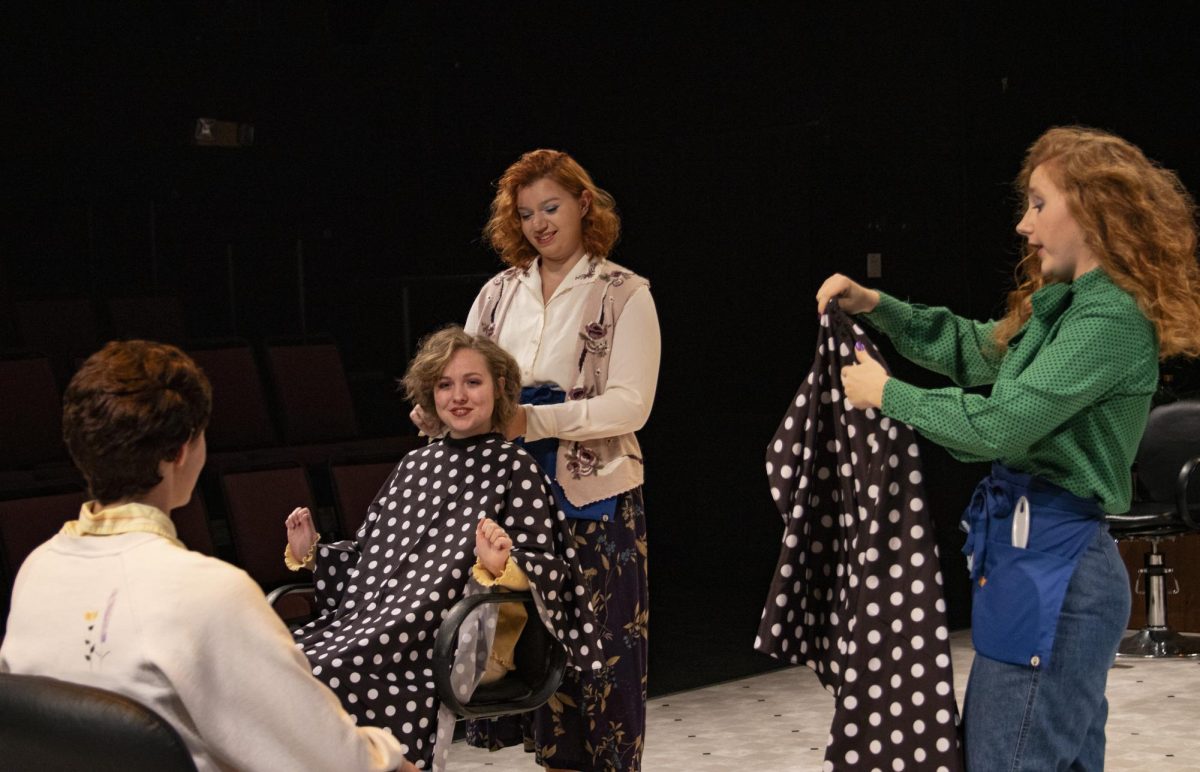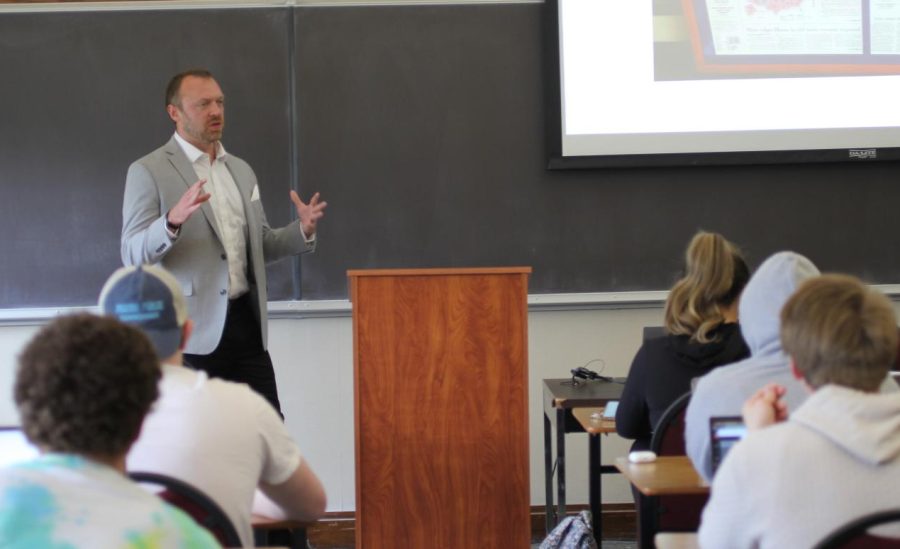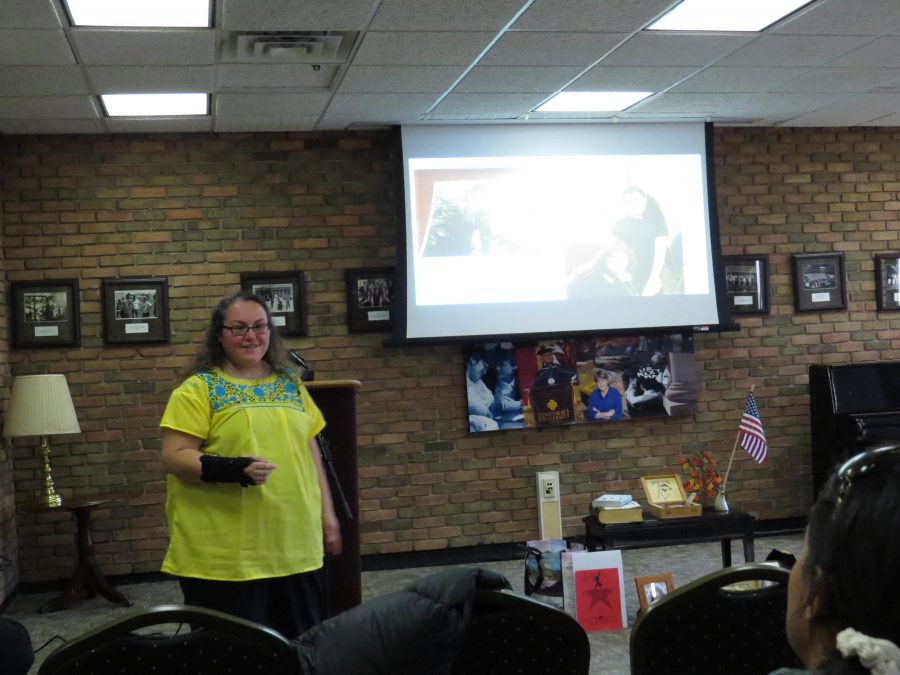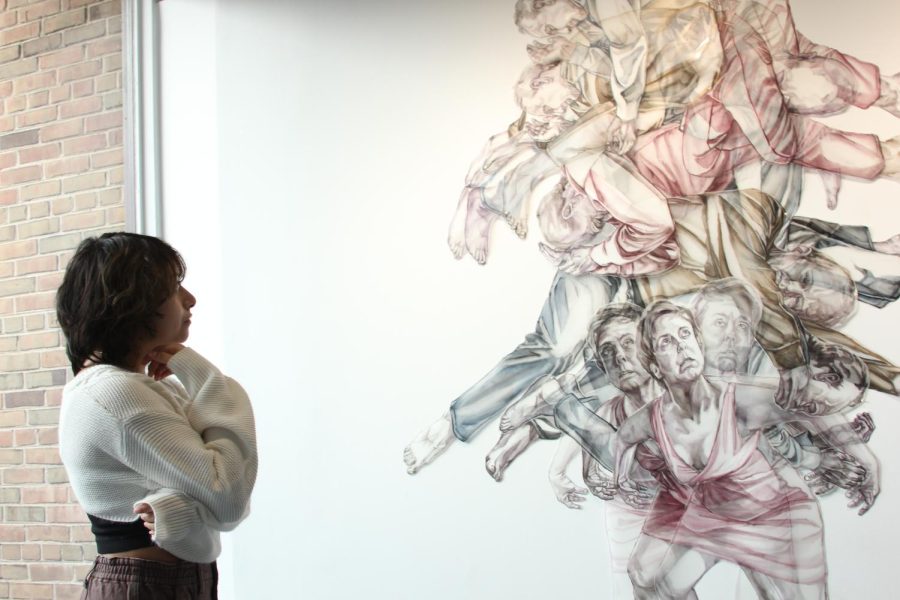The Artists of Concordia Theatre navigate racism and ableism through their performance of “The Miracle Worker,” a play describing the true story of Helen Keller, the first deaf and blind person to earn a bachelor’s degree in the United States, and her instructor, Annie Sullivan.
Sullivan is tasked to discipline and teach the “uncontrollable” Keller, teaching her how to communicate despite Keller’s disabilities. The real Keller graduated from Radcliffe College (now part of Harvard University) in 1904, and died in 1968 at the age of 87. The play is based on Keller’s autobiography, “The Story of My Life.”
“I try to keep in mind how Helen would feel in the moment, because she goes through a lot of really angry outbursts,” said sophomore Evalynn Berg, who plays Keller. “Helen doesn’t understand what’s going on because she can’t see and she can’t hear, but she’s not mentally handicapped.”
Berg does not share any of the same impairments as Keller, but personifies the character through her performance.
“Imagine being in that void, and then all of a sudden, something reaches out and grabs you, what kind of reaction would you as a person have to something like that? You would be startled,” said Berg.
In the theater, actors not only need to perform on stage but need to reach the audience all the way to the back rows. Berg achieves this through emoting and sounds to show the audience Keller’s feelings.
“A really big thing is the facial expressions and the movement she makes,” Berg said. “It’s the little things that become important for her character, because she can’t speak.”
Director Mark Bernstein, a former special education and sign language teacher, chose “The Miracle Worker” because the themes of triumph are impactful towards the disabled community and raise awareness. “Helen Keller was a real person, and she was remarkable in that she was blind and deaf,” said Bernstein. “It should make us take a look at the people who are around us that are different and realize that there’s always more going on than we give them credit for.”
While the themes of awareness and equality are present for people with disabilities because of the 1900s time period, “The Miracle Worker” also includes dialogue and actions demonstrating racism towards the Kellers’ servant Viney, played by Asha Edgerle.
“To be accurate, the playwright portrayed black people in a way that he felt was right for the time that the play was written,” Bernstein said. “But, to be more sensitive, and not change the story but be more politically correct, I think it was a responsible thing to change some of those lines.”
Playwright William Gibson wrote “The Miracle Worker” first as a televised miniseries that ran on CBS in 1957, then as a Broadway play in 1959. The play was also adapted into several films, which were released in 1962, 1979, and 2000. In the 2000 film, Viney was played by Black Canadian actress Jackie Richardson.
Some of the original dialogue reflects the social norms of the 1950s.
“I think it’s fine to change that stuff, because otherwise it just kind of sets a whole unpleasant feeling over the show,” said freshman Eric Perry, the assistant stage manager for the production. “The scenes with Viney kind of take away from the main story that it’s trying to tell.”
“The Miracle Worker” will continue this weekend in the Bergmann Theatre, with performances on Friday and Saturday. Tickets are free.

